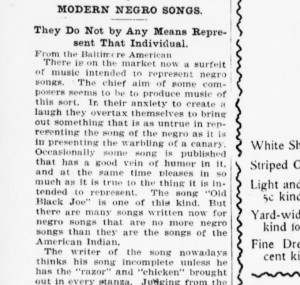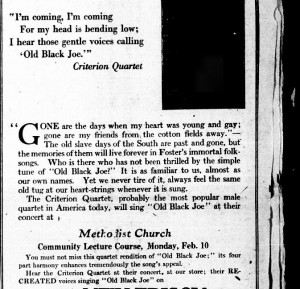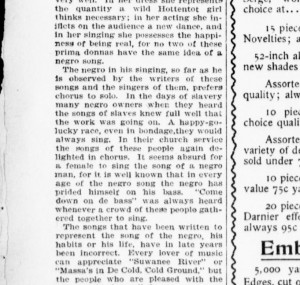Old Black Joe is a vocal tune accompanied by piano, which was composed by Stephen C. Foster in 1860. It speaks of an individual by the name of an Old Black Joe and in this tune it touches upon racial topics. This includes mentioning cotton fields, being away from friends. Friends not coming with Joe to where he is now, and the grief of that notion. This became a tune that many of older generations know and when I looked up a recording on Youtube the responses were mixed. Some remembered it as a good old tune that brought them back to older times. Others discussed how it was racist and the channel that it was posted on would actually respond to some of these comments. The cover of the sheet music also depicts that of “Old Black Joe’’.
The music of the time was much different than today. With that in mind, hearing it now is very odd. Stephen C. Foster was a white man and when doing a simple google search he is labeled The Father Of American Music. The thing is that he was a parlor and minstrel music performer in the 1800s. Minstrel performance was done by both white individuals and black individuals as learned in class. Black performers performing minstrel works eventually led to them being able to be themselves in other works and lead to characters being played by black performers becoming a possibility. With all of this combined with Stephen C. Foster being a white minstrel performer. Should this be one of the famous tunes that lives on. When actual black musicians also were making music, those musical works were not performed. I think that this is also tied into the Rhapsody in blue issue of topics, ideas, and musical ideas being taken from these black artists and having white musicians using them. While also truly not embodying the authentic nature of these groups. How is it that this tune was kept alive while others were not. What must we do know to not have that continued trend to occur and create lasting change. That fixes the issues of our past.
Foster , S. c. (2020). Old black Joe : song with variations. Temple university Libraries . https://digital.library.temple.edu/digital/collection/p15037coll1/id/6252



